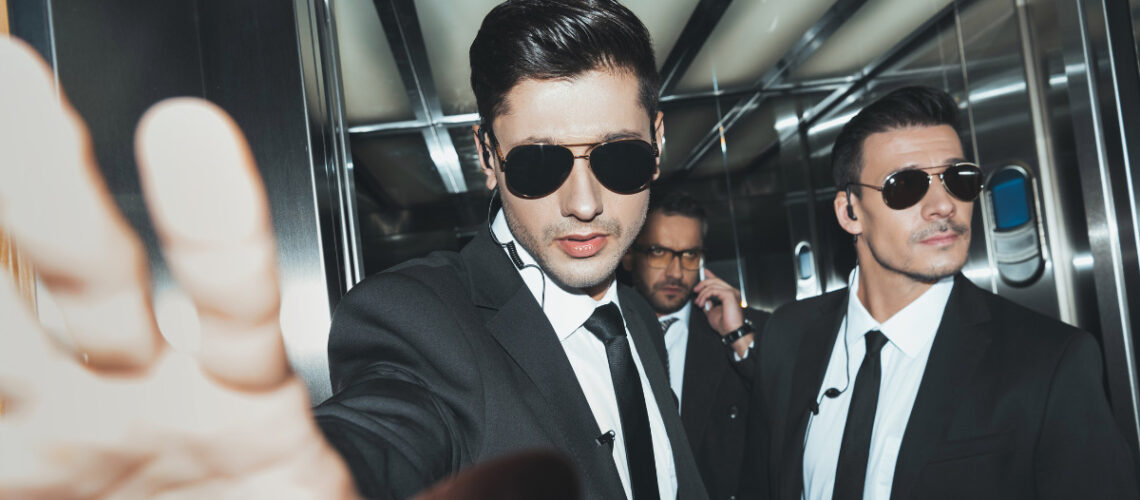In recent years, the world has witnessed a profound transformation in the realm of celebrity culture, thanks to the pervasive influence of social media platforms. This seismic shift has redefined how celebrities interact with their fans, how their personas are constructed, and even how they attain stardom. This blog post explores the revolutionary impact of social media on celebrity culture, shedding light on the ways it has changed the landscape of fame and entertainment.
The Birth of a New Era
Before delving into the intricacies of this digital revolution, it’s important to understand the pre-social media celebrity landscape. Traditionally, celebrities were enigmatic figures, shielded by publicists and carefully crafted images. The public’s perception of them was filtered through controlled interviews, carefully curated photoshoots, and scripted appearances. The public rarely got a glimpse into their real lives.
With the advent of social media, this paradigm was upended. Celebrities could now connect directly with their audience, bypassing the traditional gatekeepers of the entertainment industry. Twitter, Instagram, Facebook, and YouTube became platforms where stars could share their thoughts, photos, and videos in real-time.
The Personalization of Celebrity
One of the most significant changes brought about by social media is the personalization of celebrity. In the past, stars were distant and unattainable, but now, they can be just a click away. Fans can follow their favorite actors, musicians, and athletes and get a glimpse into their daily lives.
Celebrities use social media to share their passions, opinions, and personal experiences, allowing fans to feel a deeper connection. For example, Dwayne “The Rock” Johnson regularly shares his workout routines and motivational messages on Instagram, fostering a sense of camaraderie with his followers. This personal connection enhances the appeal of celebrities and makes them seem more relatable.
The Power Shift: From Media to Individual
In the pre-social media era, celebrities depended on media outlets to disseminate their image and message. Interviews with journalists and appearances on talk shows were the primary means of reaching the public. Today, social media enables stars to be their own publicists, controlling the narrative around their lives and careers.
This shift in power has had profound implications. Celebrities can now bypass negative media coverage or set the record straight on their terms. They can announce new projects, respond to rumors, and engage with fans directly, without the need for intermediaries. The unfiltered nature of social media can be both a blessing and a curse, as celebrities must navigate the pitfalls of instant feedback and public scrutiny.
The Democratisation of Fame
Another remarkable aspect of the social media revolution is the democratization of fame. In the past, aspiring artists, actors, and musicians often had to go through a rigorous selection process by industry gatekeepers to gain access to the spotlight. Today, anyone with talent and dedication can build a following on platforms like YouTube or TikTok.
Social media has given rise to a new breed of celebrities, often referred to as “influencers.” These individuals have garnered large followings by creating content that resonates with niche audiences. They can monetize their popularity through brand partnerships, sponsorships, and merchandise sales. This phenomenon challenges the traditional notion of celebrity, as influencers often wield as much cultural influence as established stars.
Transparency and Authenticity
Authenticity has become a cornerstone of social media celebrity culture. Audiences crave genuine interactions and personalities, and celebrities who present themselves as authentic tend to resonate more with the public. This shift towards transparency has encouraged stars to showcase their vulnerabilities and imperfections, leading to a more authentic portrayal of their lives.
Take, for instance, Chrissy Teigen’s candid posts about motherhood and body image on Twitter. By sharing her struggles and triumphs, she has endeared herself to fans who appreciate her openness. Such authenticity fosters a deeper connection with the audience, humanizing celebrities in ways that were previously unimaginable.
The Rise of Fan Engagement
Fan engagement has reached unprecedented levels in the age of social media. Celebrities can directly interact with their followers, responding to comments, hosting live Q&A sessions, and even incorporating fan-generated content into their work. This level of engagement not only strengthens the bond between celebrities and their fans but also provides valuable feedback and insights.
Additionally, social media has given rise to fan communities and fandoms that can unite fans from all over the world. These communities provide a sense of belonging and shared enthusiasm for a particular celebrity, movie franchise, or musical group. They organize events, create fan art, and even influence industry decisions through coordinated campaigns.
The Dark Side of Social Media Fame
While social media has revolutionized celebrity and pop culture in many positive ways, it has also brought to light some of its darker aspects. The constant scrutiny and pressure to maintain a perfect image can take a toll on celebrities’ mental health. Online harassment, cyberbullying, and invasive paparazzi culture are ever-present challenges.
Furthermore, the “cancel culture” phenomenon, in which celebrities face severe backlash and public condemnation for past actions or statements, has become a significant concern. The court of public opinion can be swift and unforgiving, with social media amplifying both praise and condemnation.
The Future of Celebrity Culture in the Digital Age
As technology continues to evolve, so too will celebrity culture. Virtual reality, augmented reality, and immersive experiences are poised to offer new ways for fans to connect with their favorite stars. Social media platforms will continue to evolve, presenting fresh opportunities and challenges for both celebrities and their audiences.
In conclusion, the impact of social media on celebrity culture cannot be overstated. It has ushered in a new era of accessibility, transparency, and engagement between stars and their fans. While this transformation has brought about many positive changes, it has also exposed celebrities to unprecedented levels of scrutiny and posed new challenges. As we navigate the evolving landscape of celebrity culture in the digital age, one thing remains certain: social media will continue to play a pivotal role in shaping the future of fame and entertainment.

